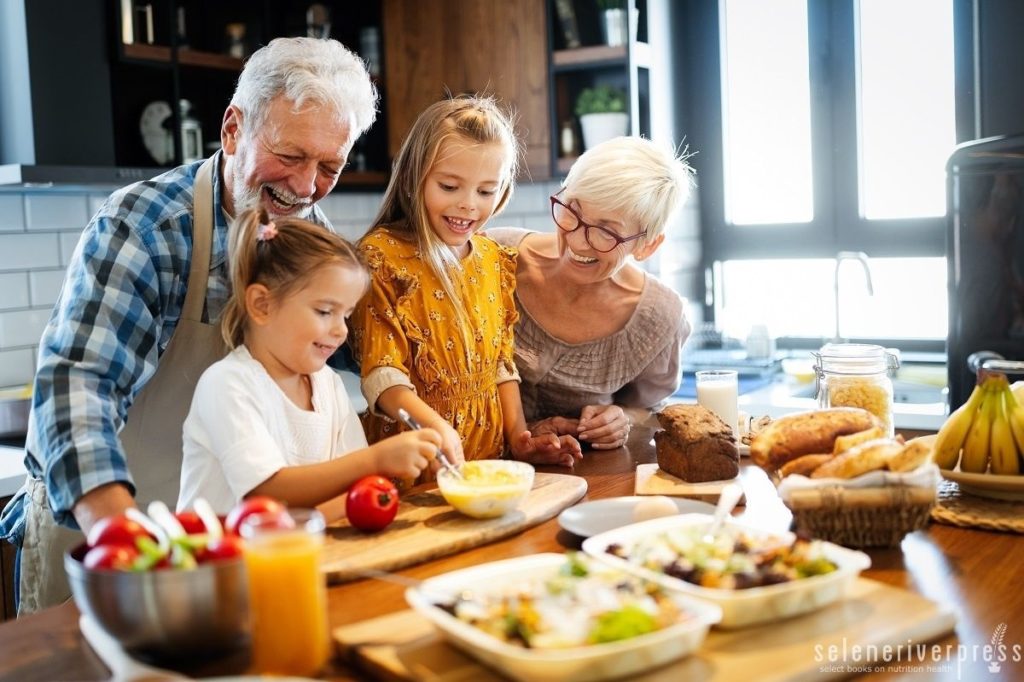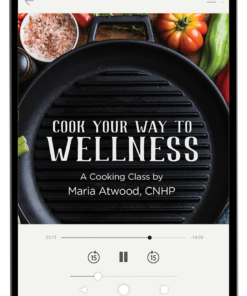We often forget about older people during the holidays, and for that matter during the rest of the year as well. (Sad but true.) Who are they? For the most part, they are aging loners who may or may not have family nearby. This year has been an especially difficult one for our seniors and their loved ones as they deal with the pandemic. Nevertheless, it seems that things are at a mild roar at the moment, and there is a sense that the worst may be over throughout the country. The good news is that since visitations are now acceptable, I thought to focus on foods suited for our older family members and friends—and not just for the upcoming holidays but for other occasions as well.
Why Older People Lack the Incentive to Cook
For the most part, older people don’t have the incentive to cook full, nutritious meals. This is especially true during the two biggest holidays of the year: Thanksgiving and Christmas. However, not wanting to cook can start at a much younger age, in our fifties or even earlier, so there are many malnourished aging persons who could use some occasional company and even a festive meal with all the trimmings.
People 75 and over are a true gift to our nation, and a sincere tribute to them may be long overdue. I would like to say thanks to all of you who are in that group! No doubt many of us know of a senior relative or close neighbor who would love to occasionally be included for a nice dinner with the family. Following are some thoughts and ideas that may help you start a tradition of inviting a senior to your next Sunday dinner or upcoming holiday meal.
The Certainty of Getting Older
Aging is somewhat of an ordeal, and we can bank on it to come into our lives despite all the things we do to keep it at bay. Much of the effects of aging, for better or worse, are primarily due to what we do for a living. (For example, if perchance you are a waiter, you are more likely to have leg and feet damage.) The question then becomes how much attention we pay to our diets and, most importantly, how we remedy any illnesses during those working years.
Some people in our aging population use allopathic prescriptions from their medical doctor almost exclusively. In some cases these are necessary, but they can be very toxic. Other seniors successfully use alternative, chiropractic, herbal, and nonchemical remedies, and in my humble opinion these may be the better choice for any illness that can be remedied with a natural protocol. In addition to allopathic medications, far too many seniors have been dependent on “SAD,” or the Standard American Diet, which by definition “consists of ultra-processed foods, added sugar, fat, and sodium. Consumption of fruits, vegetables, whole grains, legumes, and protein is greatly lacking in this diet which consisted of poor-quality food.” (Emphasis mine.)
Personal note: I believe that the word “fat” as used in the paragraph above means vegetable oils instead of good fats such as lard, tallow, coconut oil, and butter. The quote also mentions “sodium” (salt), which is good for us when it’s mineralized. However, in this case they are talking about table salt, which includes free-flowing additives and is not the best salt for maximum health. See here for a list foods that are all superior to a SAD diet.
Eating Issues for Older People
When you plan to entertain older people remember that they may have special needs to consider. I have found the following two problems that many seniors must deal with, so I recommend giving them special attention when planning your menu and seating.
Poor dental health. Many seniors wear dentures, which can make it difficult to chew hard or tough meats, crackers, breads, and/or other foods that are difficult to masticate. Softer and easily chewed foods are always a welcome treat.
Physical difficulties. Most seniors will want to know where the restroom is located, so be aware of stairs or long walks that may be an impediment. Good seating is essential to easily get up and down in case your senior guest has arthritis or some other movement issue.
Let’s Talk About Nourishing Foods for Older People
This list is made up of foods that provide a great deal of nutrition and also aid a sluggish bowel, which is a common issue faced by a good many of our seniors.

- Seafood
- Beef
- Chicken
- Oats
- Wholegrain breads
- Fruit salads
- Minced meats (for those with chewing problems)
- Eggs (alone or in a recipe)
- Potato patties
- Brown rice pudding or other similar dish
- Yogurt
- Fermented drinks (learn how to make them in Cook Your Way to Wellness)
- Raw milk
Note: When sweets are a treat and not a regular part of the diet, it’s best to make them as nourishing as possible by using fresh wholegrain flours, healthy fats, and alternative unrefined sweeteners such as honey, molasses, or maple syrup. Coconut sugar can also be a healthier option if it’s of good quality.
Must-Have Supplements for Older People
A must-have book for both practitioners and those interested in studying this great resource is Adjuvant Protocols for Healing by Joseph Antell, CN. I have listed Joseph’s Senior Citizen protocol below, which outlines some of the best nutritional supplements that older people can take. See your holistic practitioner to make sure this protocol is tailored for your individual needs. And I warn you, do not purchase any Standard Process supplements from online sources. The product may have not been kept in ideal environments and/or may be expired. Be sure to find a Standard Process practitioner near you for a tailored protocol using authorized SP products.
Listed in order of importance:
- Ferrofood
- Cardio-Plus (normal to high BP) or Vasculin (normal to low BP)
- Super-EFF
- Trace Minerals-B12
Also consider:
- Neurotrophin PMG
- Gotu Kola Complex (MediHerb)
- Ribonucleic Acid (RNA)
- Cyruta Plus
- Lactic Acid Yeast
- Boswellia Complex (MediHerb)
- Paraplex
Lifestyle recommendations:
- Walk 30–60 minutes daily.
- Mind and brain stimulation.
- Physical contact such as massage, food reflexology, or time with animals.
In this article I cover some of the basics of helping our older relatives and/or friends enjoy the normal pace of life. Nevertheless, this important subject is rarely covered in popular media where the emphasis is forever on the young, and finding better health and nutrition for our aging population isn’t much discussed. Please pass this on to anyone who may make the effort of reaching out and supporting seniors from this point forward.
[xyz-ihs snippet=”Begin-Authors-Note”]Afterthoughts from the Traditional Cook
Poems on aging are rarely jubilant, but there are those that cast old age in a more tender light. The 8th-century Chinese poet Lu Yu offers this portrait of the old man in his poem “Written in a Carefree Mood.”
Old man pushing seventy,
In truth he acts like a little boy,
Whooping with delight when he spies some mountain fruits,
Laughing with joy, tagging after village mummers;
With the others having fun stacking tiles to make a pagoda,
Standing alone staring at his image in the jardinière pool.
Tucked under his arm, a battered book to read,
Just like the time he first set out to school.
—Lu Yu
Disclaimer from Maria Atwood, CNHP: I am a Certified Natural Health Professional (CNHP) not a medical doctor. I do not diagnose, prescribe for, treat, or claim to prevent, mitigate, or cure any human diseases. Please see your medical doctor or health practitioner prior to following any recommendations I make in my blog posts or on my website.
Images from iStock/nd3000 (main), AlexRaths (food on table), DisobeyArt (woman kissing mother).




